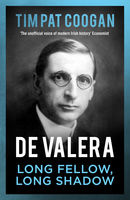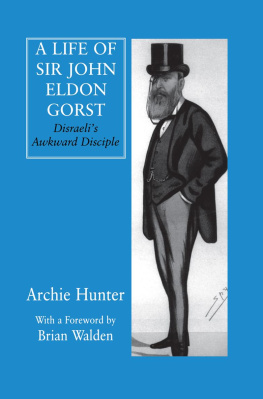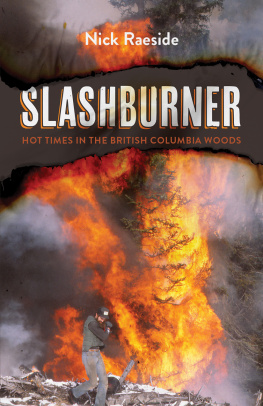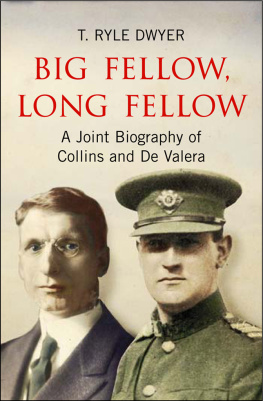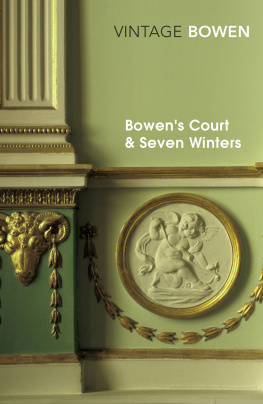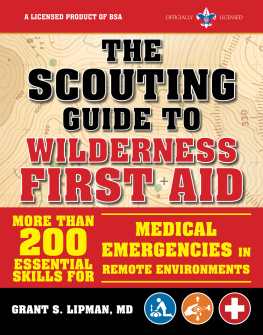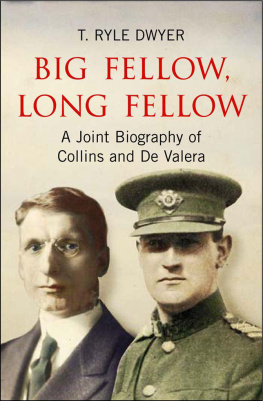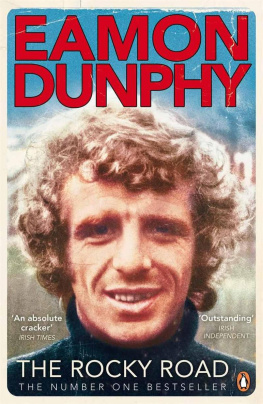CONTENTS
1
S tanding just head and shoulders above the living room windowsill, I watched and waited excitedly for Bill and Brendan Lawlor to come intoview. While they were still a good distance away I knew it was them, because Bill, the older of the brothers, was wearing a distinctive Scout hat which looked just like a Canadian Mounties. Theyre coming, I called out and Mammy came through the kitchen door urging me to contain my excitement. It was more polite to wait until they came up the garden path and knocked on the hall door, Mammy said. Weve come to take Archie to the Scouts, said Bill. Mammy thanked them, and we set off to what was to be my first Cub Scout meeting, and the start of over half a centurys involvement. This was 1947.

Im not sure why I wanted to join the Scouts. Football and hurling at school and being an altar server at the local church somehow did not seem enough though, and Drimnagh, where I lived at that time, had few organised facilities for young people. I think I was looking for something more interesting, or perhaps it was the fact that my father had been a Scout in Scotland for a number of years. His first visit to Ireland was with his group of Rover Scouts. Perhaps I was influenced by pictures in the family photo album of him and his mates camping at Powerscourt Demesne. At seven years old the idea of travelling to remote areas to experience living in a forest or on a mountainside appealed to me and this was what the Scouts seemed to offer.
My parents had obviously made enquiries as to the whereabouts of local Scout Troops and the closest to our house was at Merchants Quay, about three miles away. There were so few troops established that my name went on the waiting list. Mother had befriended a Mrs Lawlor who lived close to our church and discovered that her boys were in the Scouts attached to the parish of Donore Avenue. So it was that I now found myself on my way with Bill and Brendan to the Scout hall.
Although the troop, known as St Theresas Troop 35th Dublin, was founded in Donore Avenue nineteen years earlier, the meeting place would change many times in its long history. Fr Valentine Burke, head curate of St Theresas church, Donore Avenue founded it in 1928. The first Scoutmaster (now termed Scout Leader) was Mr Jack Giltrap. He was a former Baden-Powell Rover Scout. He had long left the unit when I joined but many years later I would meet up with him, as we both worked for the same company (Fry Cadbury) for a few years. At that time it was usual for Protestant boys who had a spirit of adventure to join the SAI (Scout Association of Ireland) or the Boys Brigade (BB), of which my uncle Ian and cousins Bobby and Duggy were members. Catholic boys with like-minds joined the CBSI (Catholic Boy Scouts of Ireland). We referred to the SAI as Baden-Powell Scouts. Of course we were all following in the great tradition of the world brotherhood of Scouting as envisaged and established by Lord Baden-Powell.
It is generally accepted that, sometime in 1928, Fr Burke acquired the use of the Little Flower Hall in Meath Street for troop meetings and, under his aegis, the troop was well provided for. He was known locally as Toucher Burke because of his ability to extract money for any useful purpose. There is a story about a child who swallowed a halfpenny and after the doctor was unsuccessful in removing it, neighbours advised his parents to take the child to Fr Burke because he could get money out of anyone. In 1947, Fr Burke was appointed to the National Executive of CBSI.
About this time, however, he was transferred as parish priest to Cabra West and lost to our unit. Following his departure, notice was given to vacate the Little Flower Hall. With this began a period of moving about from one meeting place to another, and it was also, more significantly for me, the point at which I became an official member.
With the Lawlor brothers as my escort, we crossed the bridge near my house, then a short distance along the canal tow path and over the footbridge at the 2nd Lock. Now in Inchicore parish we hurried along Connolly Avenue on to Emmet Road, then turned right on to Grattan Crescent at the north end of Tyrconnell Road. The final leg of the journey was along Inchicore Terrace which led to the Inchicore Railway works. The troop had acquired the use of the railway dining hall for their meetings. The troop had two sections then: the Cubs (known as the Cub Pack) and the Scouts.
Once inside the Den, Brendan, who was Senior Sixer, introduced me to the Cub Master, Mr Healy. Leaders surnames were prefixed with Mister or they were addressed as Sir back then, and it would have been considered cheeky and even disrespectful to use first names when addressing adults.
To become a member of the Pack it was necessary to be eight years of age or to have made your First Holy Communion, and to pass a few tests. I soon learned the promise, the principles and the Cub prayer. So as to be ready for the investiture ceremony it was also necessary to learn foot-drill. The weekly meetings began with the Cub prayer followed by collection of subs, which were only a few pence, and then an activity game.
The games varied from week to week and were designed to heighten our senses and develop physical strength. Snatch the Bacon or Pirate Chief was always a firm favourite. After lining up to form three sides of a square, one blindfolded boy sat in the centre of the fourth side with legs crossed. From the beginning of one line, each in turn called out his position until everyone had a number. One of the leaders then placed a Cub cap just in front of the seated player; this represented the bacon. When a number was called out, the challenge was for the selected player to reach and snatch the bacon and return to the line before being pointed at by the blindfolded player known as the pirate. To do this there had to be absolute silence so as to be fair to the pirate chief in detecting the approach of the thief and also to test the dexterity of the later. If pointed at, then the thief took up the position of the pirate.
The Box was a bit more physical. A large circle was formed by holding hands and a box was placed in the centre of the circle. The leader then called out To the right! or To the left! and the entire circle of players, still holding hands, ran as fast as they could. At will, the strongest players pulled those nearest them towards the box and if made to hit the box that player was out. Should two players loose their grip during the run, then they were both out.
The game Bulldog also required everyone to be numbered off and this time the participants lined up across the room. One player, the bulldog, was chosen to stand facing the group some distance away. The bulldog called out a number and that player had to reach the opposite end of the room without being caught. If the bulldog failed to catch the player, then the entire group raced to the other end of the room. The bulldog then had a second opportunity to catch a player or two. When caught, a player joined forces with the bulldog. Eventually there would be only one or two left against the rest and there was seldom an outright winner.
After these physical games, we were happy to take instruction in first aid, compass points, knots or nature study. Some meetings finished with campfire songs. Everybody knew the Troop Yell and the Troop Song, as these were always a part of the campfire. The tradition of campfire singing had begun almost at the founding of the troop and was to become well known within the organisation.
2
I n the years preceding my involvement with the 35th Dublin, they had been active in many notable areas, not least of these being the Eucharistic Congress in June 1932 where they were involved in stewarding and providing first-aid facilities.


